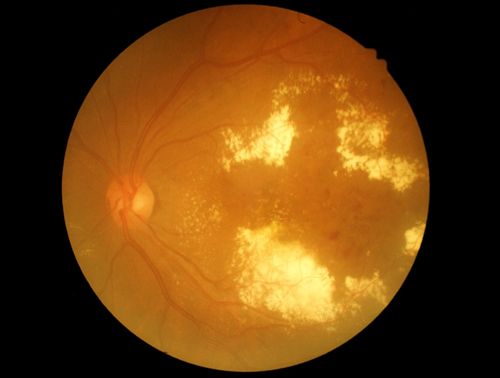What is diabetes and what is the connection between diabetes and the eyes?
What is Diabetic Retinopathy?

A photo of diabetic retinopathy.
The effects of diabetes and the eyes is often manifested in the form of the eye disease diabetic retinopathy. Diabetic retinopathy causes damage to the eyes as a result of diabetes. The key characteristic is the leakage of blood from tiny blood vessels in the back of the eye. This happens as a result of the weakening and swelling of the blood vessels. Undiagnosed and untreated diabetic retinopathy is very serious as it can result in vision loss and even blindness.
Diabetic Retinopathy Symptoms
- Changes in vision (both near and far distances)
- Double vision
- Loss of vision
- Flashing Lights
- Floaters
- Blurred vision
If you have any of the above symptoms, even if you are not a diabetic you should seek immediate medical attention.
What Should I Do If I’m A Diabetic?
For Diabetics, the best thing they can do is be proactive and have their vision and health of their eyes checked annually. Because the relationship between diabetes and the eyes is an important one to monitor, as a diabetic, having your eyes examined more often is key to healthy eyes and vision. Because the effects of diabetes and the eyes can cause permanent vision loss if not diagnosed in the early stages. At a diabetic eye exam, your optometrist will evaluate and monitor your eye health for any problems related to diabetes. Often, an optometrist will perform extra testing on diabetics, to gain a whole interior view of the eyes to assess eye health. This can be done with special machines, such as an Optomap or through a diabetic dilation exam. Along with regular eye exams, diabetics should also follow any recommendations from their doctor to help manage their disease. This often includes changes in diet, exercise, and taking medications.
At the Glenmore Landing Vision Center, we want all patients to maintain their health. And to do this, prevention is key. That is why it’s important to have routine eye exams that help monitor vision and eye health. If you are in need of an eye exam, conveniently book your next appointment online. Or call (403)255-2826 during regular business hours to book your next appointment.

